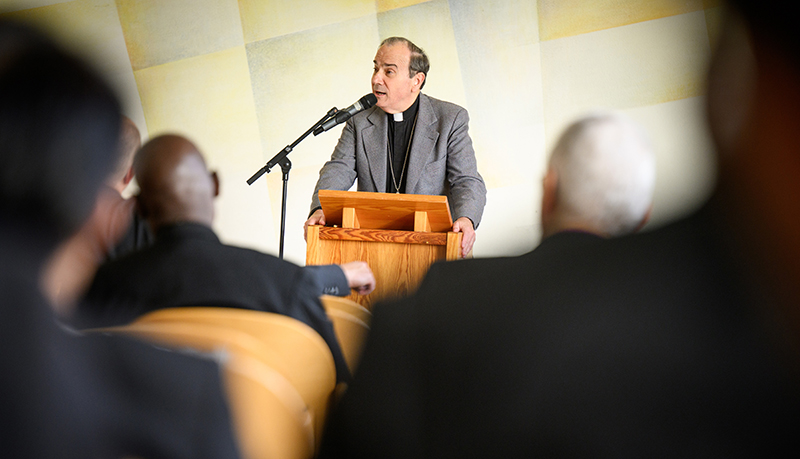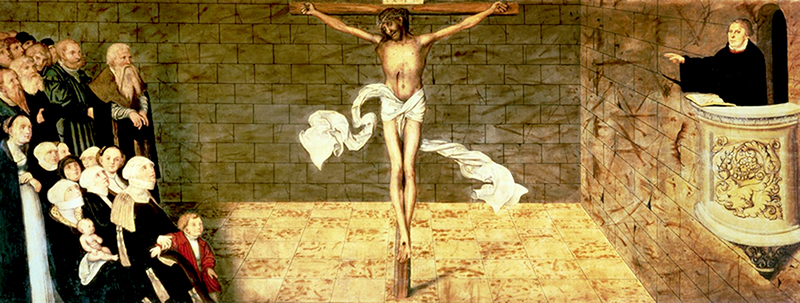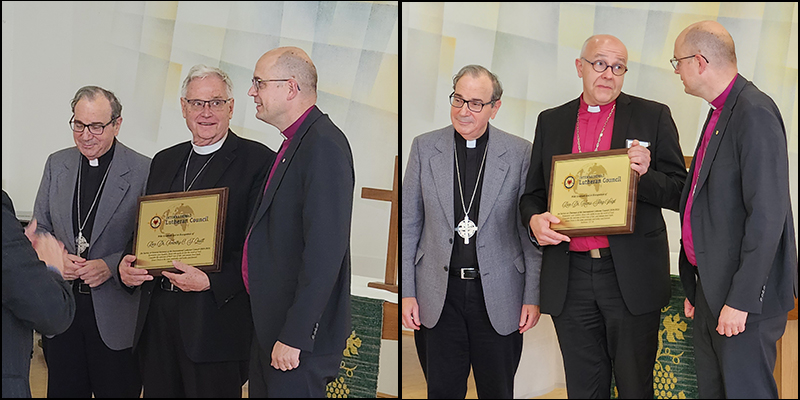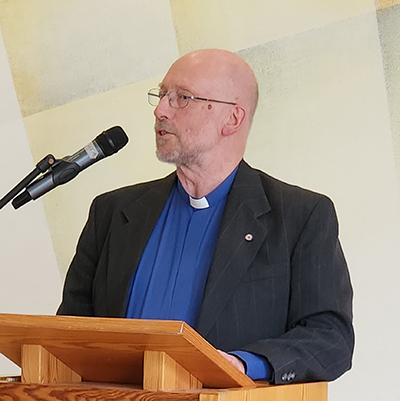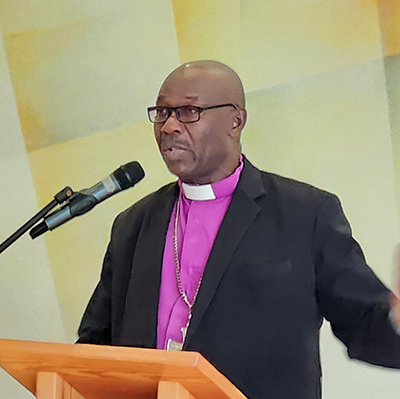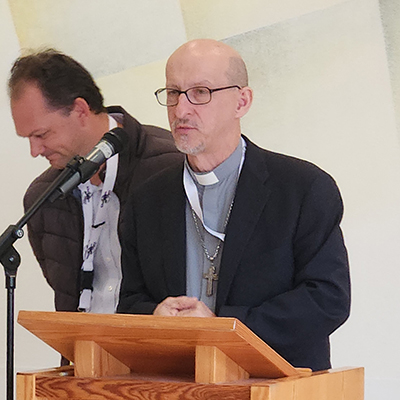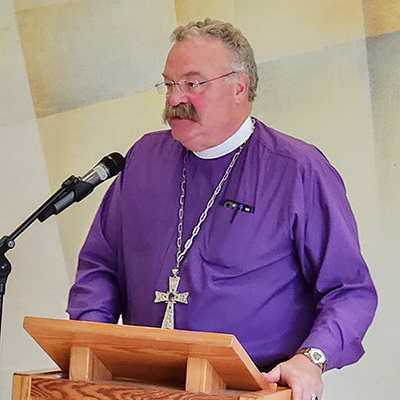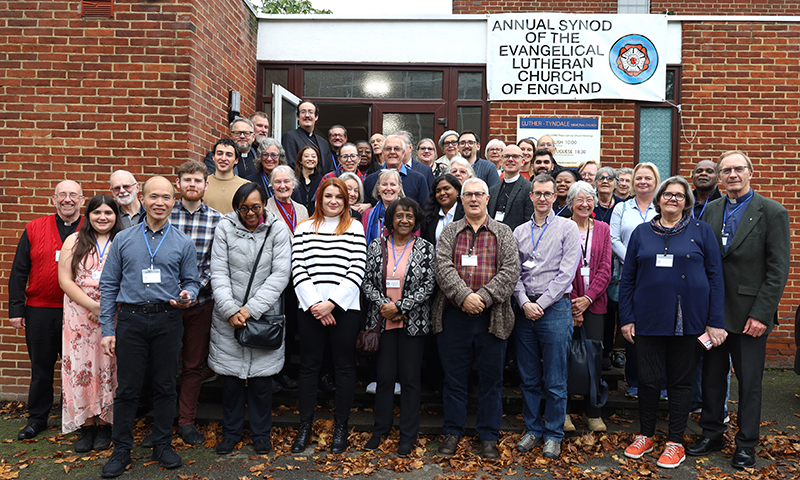
UNITED KINGDOM – The Evangelical Lutheran Church of England (ELCE) held its 70th Annual Synod in London from November 1-2 under the theme “Always Courageous,” based on 2 Corinthians 5:6-7. Delegates and visitors from ELCE congregations and missions in England, Wales, and Scotland met together for fellowship and encouragement; to mark 70 years since the British church became autonomous; and for synodical business, including the election of the church’s next Chairman.
The ELCE is the oldest British Lutheran church body in the United Kingdom, having begun in 1896 and become autonomous 70 years ago in 1954. The ELCE marked this year’s anniversary with a range of photos and film clips which played on loop during breaks at the Synod. An evening event, “Celebration 70,” was also held which consisted of short contributions from congregations of reverie and memory, words and song, describing the ELCE’s history since 1954. It was a warm and nostalgic time recalling family and friends, energy and effort, master plans and God’s plan, compered by ELCE Chairman George Samiec.
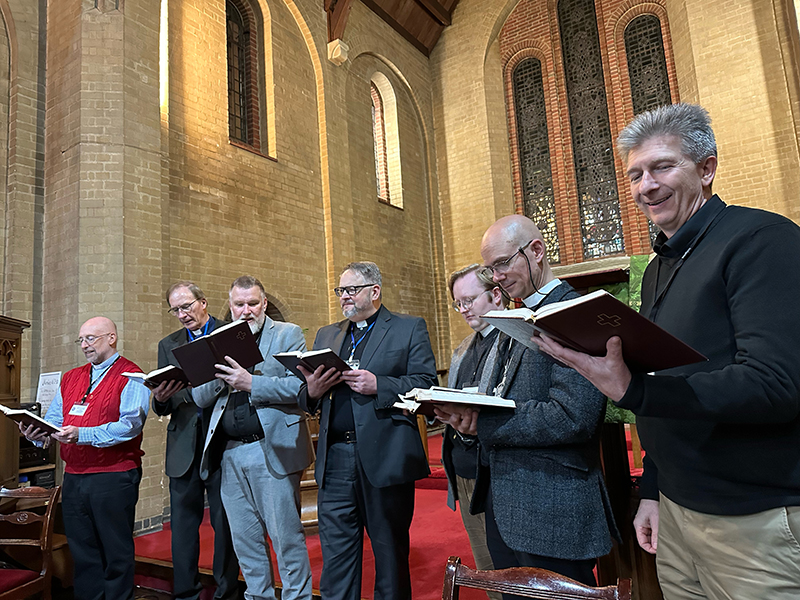
The Pastors’ Choir sang “Thy Strong Word,” with everyone joining in for the final three verses—a symbolic reminder of those who have served the ELCE, and how the ELCE and its theological college, Westfield House, are linked together. [Martin Franzmann, who wrote “Thy Strong Word” (LSB 578) was a Tutor at Westfield House.] The highlight, however, was Rev. Didzis Stilve’s reworking of Leonard Cohen’s “Hallelujah” for the occasion, sung by Rev. Stilve and accompanied by Rev. Tapani Simojoki on piano, with the congregation singing the chorus.
At Synod, the ELCE established a Church Endowment Fund with the goal of supporting specific ELCE projects, endowing a Chair of Theology at Westfield House, supporting the ELCE administration, and providing support for the training of church workers.
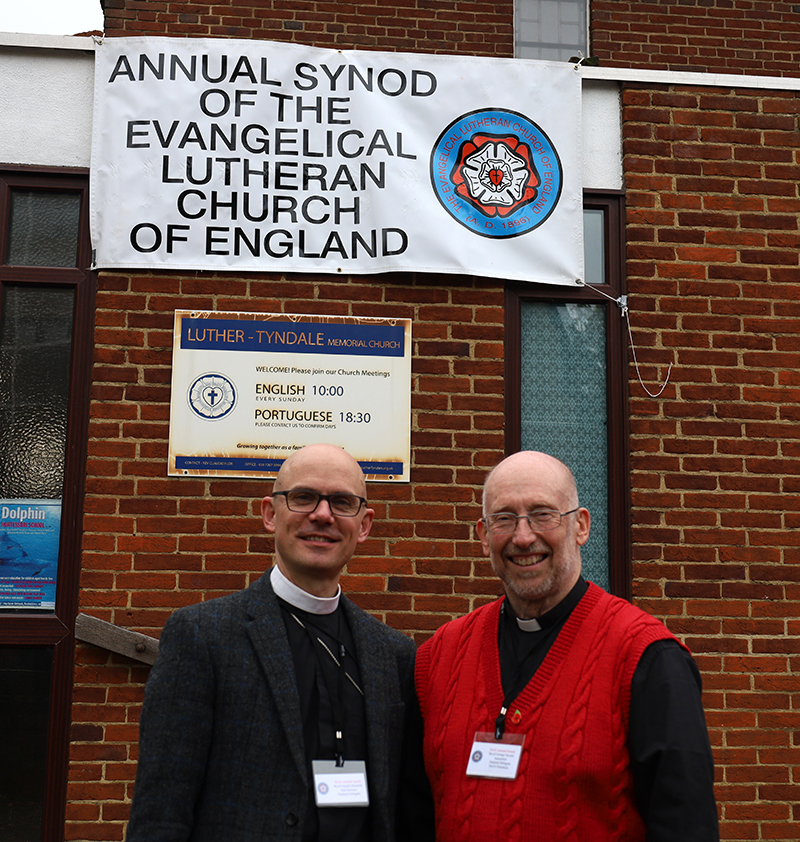
The ELCE also elected its next Chairman. Rev. George Samiec declined to stand for another term as Chairman, and the church elected Rev. Tapani Simojoki to serve as his successor. The ELCE practises a year’s overlap between outgoing and incoming Chairmen, to help the Chairman-Elect become acquainted with the role and work. Chairman Samiec’s service, then, will end at the conclusion of the ELCE’s 71st Annual Synod in November 2025, at which time Chairman-Elect Simojoki’s will commence.
Rev. Samiec was first elected Chairman of the ELCE in 2019, after having previously served the church as Vice Chairman since 2010. He also served on the executive of the European Lutheran Conference from 2004-2018, and currently serves on the Board of Directors of the International Lutheran Council. Rev. Simojoki has served as pastor of Our Saviour Lutheran Church in Hampshire since 2010. In addition to serving the ELCE on commissions and committees, Rev. Simojoki is editor of the church’s synodical magazine, The British Lutheran, and host of “Sunday Cantata,” a programme on Lutheran Radio UK.
At the closing service, Chairman Samiec reminded participants that Jesus builds His Church, that Jesus provides the means, and that all aspects of ministry and congregational life, when good and healthy, keep the focus on Jesus. We live the 21st century version of the Great Commission, he said. The harvest is plentiful, the workers are few, but God always gives us courage to go forward with the Gospel in word and deed. “So we are always of good courage. We know that while we are at home in the body we are away from the Lord, for we walk by faith, not by sight” (2 Corinthians 5:6-7).
The Evangelical Lutheran Church of England is a member church of the International Lutheran Council (ILC), a global association of confessional Lutheran church bodies and groups which proclaim the Gospel of Jesus Christ on the basis of an unconditional commitment to Holy Scripture and to the Lutheran Confessions.
———————

